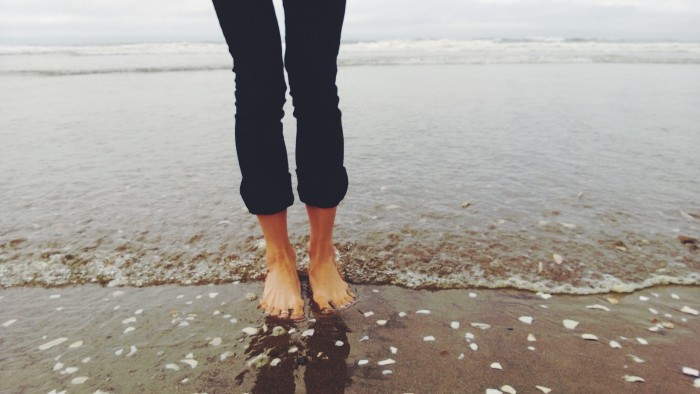About this time ten years ago, I was trying to suppress tears as I sat in the dentist’s chair. I wasn’t in any physical pain, however. Rather, a quiet, emotional terror coursed through my veins.
Weeks away from graduating with a Master’s in English, I could boast well-oiled research skills and probably write a polished essay with a gun to my head—which one of my instructors implied was the ultimate goal of her class.
My dental hygienist seemed genuinely excited about my upcoming graduation and asked me what was next—what great career immediately awaited me? I found myself mumbling my usual blurb: “Well…I could teach, I guess. And, you know…stuff.”
Truthfully, I had no idea to be anything other than a student (which is one of the reasons I’d recommend not going straight from BA to MA—general life skills are good, people). The real plan was find any job that would help me pay rent. (Seriously, I was up for anything: One gig included walking through a seedy neighborhood to hang flyers on the doors. I do *not* recommend it: Imagine unseen barking dogs and strollers left on front lawns.)
Now, I’m far from being a figure likely to deliver a graduation speech, but I’ve achieved small (though very important) milestones in my own little corner of the world.
For one, I am no longer worried about being able to “get by.” And more, I’ve developed a career goal that gets me up in the morning. Essentially, I combine my writing and creative skills with my love for luxury vegan and green beauty. As the Beauty Editor at Peaceful Dumpling, I get to do a little bit of this every day.
The following are a few of the things I wish I knew when I graduated. Perhaps these are things each of us has to learn in our own way, but I hope reading them here will help make that process a little smoother.
1. Attitude will make or break you. Once, my father and I were talking about food as medicine and how difficult dietary change can be. He said casually that you can do anything you want to if you set your mind to it. Although this is a common saying, I knew he believed it, and from that moment on, I believed it, too. It had been long since I made the transition to a whole foods vegan diet, but I wanted to teach myself how to budget and find a way to make rent while will still writing almost daily.
We each come from varying degrees of privilege, and experience an assortment of hardships over which we have little or no control. I believe I’m one of the most privileged people I know because my parents made my education the first priority since the time I started school (and probably before). At four years old, I couldn’t have made this decision for myself! What a gift.
My parents’ hard work and the resulting opportunities would be in vain, however, if I didn’t do my best to maximize them. And I’m still figuring out how to do that best, but having the heart to do so is the most important step. With conscious intention, I invite happiness and success into my life. I believe they’re possible, and I’m eager to 1) define what they mean to me, and 2) work toward them on a daily basis. It’s this intention that makes me feel everything is going to be okay.
There is so much we can’t change, but our response to these things makes a big difference. Ultimately, it will influence how we engage with those things we can change.
2. Find and embrace your authenticity. I became more conscious of my true style and interests in graduate school. Funnily enough, while sitting through class discussions on gender and heteronormativity, which usually ended in a few people declaring that masculinity and femininity are learned solely from culture, and that we’re mere puppets of society by following these norms, I started to embrace my femininity.
For years, I thought it was something to tone down. I was embarrassed to be a girly girl, whatever that actually means. I would never admit to my grad school peers that I did 90% of the cooking (because I like cooking) or that I’m obsessed with makeup (and hair and the color pink). (One can be feminine and feminist!) Once I started to own these genuine aspects of my personality—and realize that they don’t contradict intellectualism or a meta-awareness of gender, I could see more clearly what I wanted to do with my life.
I learned to become my own home—my mind is a place where all the things I care about are in dialogue with one another. Wherever I go, whomever I meet, no part of me needs to be denied. There is room for everything.
3. Live through your feelings and practice kindness. Emotions are natural, and I’m not so enlightened that I’m not swayed by them daily—even hourly! I have fear, jealousy, sadness, and angst as well as joy and excitement. Of course, it’s the negative emotions that, at least for me, are counter-productive to my larger goals.
I sometimes chastise myself for feeling the way I do, which is not productive either. Trying to squash an emotion seems only to strengthen its power over me. If I’m not in a spiritual place to float above the emotion, then I do best when I acknowledge the emotion like this:
“I feel blue right now. I know the reason (or I don’t know), but it’s okay to have this emotion. I don’t need to push it away or over-think it. It came, but it will go.”
Oddly, being honest with my emotions takes some of the “sway” out of them. By not berating myself for feeling less than swell, I’m treating myself with kindness. Like many things, it, too, is a learned skill we must practice, but believe it’s worth the daily effort. After all, kindness, a great but gentle power, is probably the best thing we can give to ourselves and each other.
Related: 20 Things I Wished I Learned in My Early 20s
5 Steps to Finding Your Path in Life
__
Photo: Mary Hood






